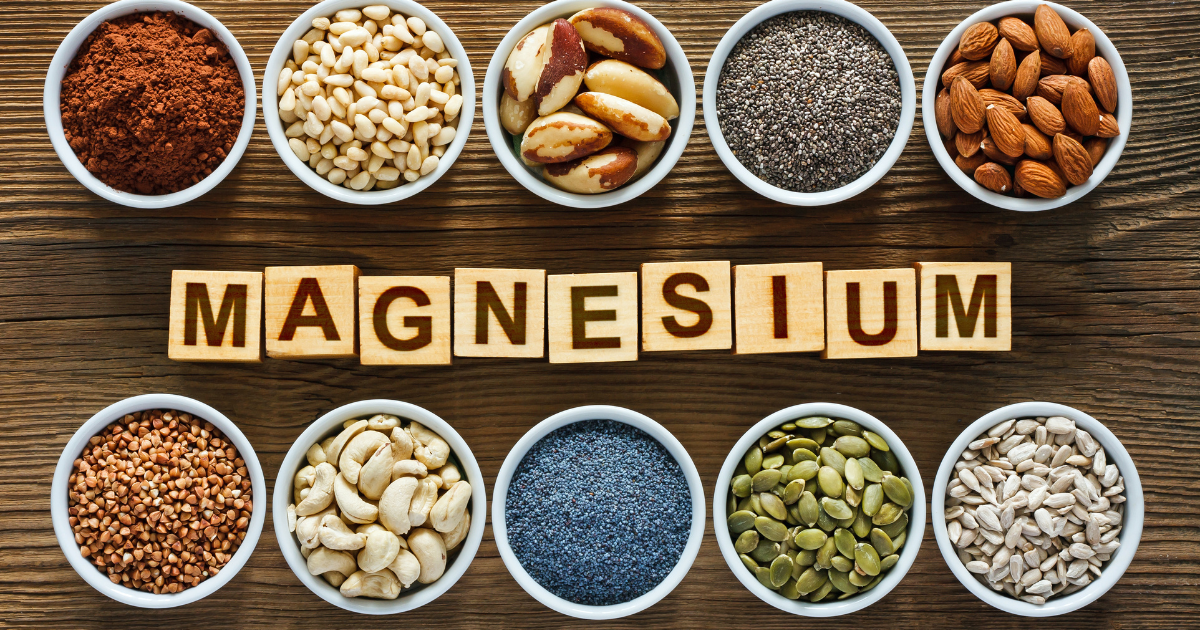Forms of Magnesium and Pros/Cons of Each Form
As we age, maintaining good health becomes increasingly important, and nutrition plays a key role in this journey. One nutrient that often takes the spotlight is magnesium, a mineral crucial for various bodily functions. In this blog, we’ll explore the different forms of magnesium, their pros and cons, and how caregivers can assist the elderly in ensuring they get the magnesium they need for optimal health.
The Importance of Magnesium
Magnesium is involved in over 300 biochemical reactions in the human body, making it an essential mineral for overall health. It plays a vital role in bone health, heart function, muscle contraction, and nerve transmission. However, as we age, magnesium absorption can decrease, leading to potential deficiencies.
Forms of Magnesium
There are several forms of magnesium supplements available, each with its unique characteristics. Here are some common forms and their pros and cons:
- Magnesium Citrate:
- Pros: High bioavailability, helps with constipation, readily absorbed.
- Cons: Can have a laxative effect in high doses.
- Magnesium Glycinate:
- Pros: Highly absorbable, less likely to cause digestive upset, good for muscle relaxation.
- Cons: Slightly more expensive.
- Magnesium Oxide:
- Pros: Inexpensive, readily available.
- Cons: Lower absorption rate, may cause gastrointestinal issues.
- Magnesium Chloride:
- Pros: Well-absorbed, may help with skin issues when used topically.
- Cons: Limited product availability.
- Magnesium Sulfate (Epsom Salt):
- Pros: Often used for external applications like baths to soothe sore muscles.
- Cons: Not typically used as a dietary supplement.
Magnesium and Elderly Health
For the elderly, magnesium is particularly important for several reasons:
- Bone Health: Magnesium contributes to bone density, which can be a concern in aging individuals.
- Heart Health: It helps maintain a regular heartbeat and supports cardiovascular health.
- Muscle Function: Adequate magnesium levels reduce the risk of muscle cramps and spasms.
- Cognitive Function: Some studies suggest magnesium may support cognitive health in aging.
How Caregivers Can Assist
Caregivers play a crucial role in ensuring their elderly loved ones get the magnesium they need:
- Medication Management: Caregivers can help with medication reminders to ensure that supplements are taken regularly and in the right doses.
- Meal Planning: Preparing magnesium-rich meals can be a great way to incorporate this nutrient naturally. Foods like nuts, seeds, leafy greens, and whole grains are good sources.
- Hydration: Encourage proper hydration, as magnesium absorption can be affected by dehydration.
- Consultation: Always consult with healthcare professionals before starting any new supplement regimen to determine the right form and dosage.
Magnesium is a vital nutrient for elderly health, and caregivers can play a pivotal role in helping their loved ones maintain adequate levels. By understanding the different forms of magnesium and their pros and cons, caregivers can make informed decisions to support the overall well-being of their elderly charges. At our Olympia Branch, we take pride in providing exceptional home care services, tailored to meet the unique needs of our clients. From compassionate caregivers to personalized care plans, we’re committed to ensuring a safe and comfortable environment for your loved ones. With branches spanning across Washington, Oregon, and Idaho, we extend our high-quality care to communities throughout the Pacific Northwest. Discover the Family Resource Home Care difference today.
Sources:
10 Types of Magnesium (and What to Use Each For)
A review of magnesium intake in the elderly. A cause for concern?






